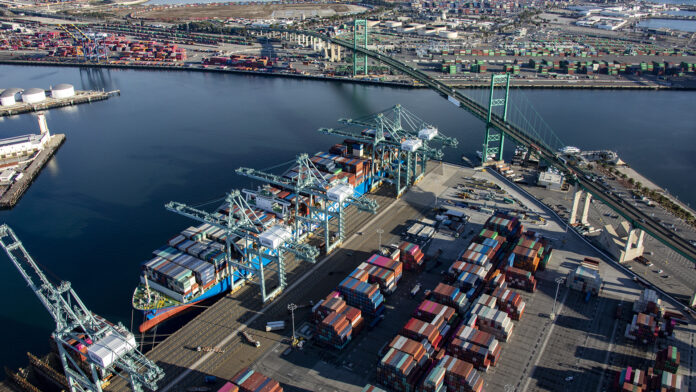-
The two US ports will delay the “container dwell fee” directed at ocean carriers until November 22
-
There’s been significant improvement in clearing import containers from the docks at Los Angeles and Long Beach in recent weeks
-
Since the fee was announced on October 25, the twin ports have seen a decline of 26% combined in aging cargo on the docks
Shippers have been given a little respite as the new dwell fee at the twin US ports of Los Angeles and Long Beach is postponed to next week.
The two ports, the busiest container ports in the United States, announced on November 15 that they will delay consideration of the “container dwell fee” directed at ocean carriers until November 22.
“We’re encouraged by the progress our supply chain partners have made in helping our terminals shed long-dwelling import containers. Clearly, everyone is working together to speed the movement of cargo and reduce the backlog of ships off the coast as quickly as possible,” said Port of Long Beach (POLB) executive director Mario Cordero. “Postponing consideration of the fee provides more time, while keeping the focus on the results we need.”
“There’s been significant improvement in clearing import containers from our docks in recent weeks,” said Port of Los Angeles (Port of LA) executive director Gene Seroka. “I’m grateful to the many nodes of the supply chain, from shipping lines, marine terminals, trucks and cargo owners, for their increased collaborative efforts. We will continue to closely monitor the data as we approach November 22.”
Since the fee was announced on October 25, the twin ports have seen a decline of 26% combined in aging cargo on the docks. This encouraging momentum supports a delay in implementation of the fee.
Under the temporary policy approved October 29 by the Harbor Commissions of both ports, ocean carriers will be charged for each import container that falls into one of two categories.
In the case of containers scheduled to move by truck, ocean carriers will be charged for every container dwelling nine days or more. For containers moving by rail, ocean carriers will be charged if a container has dwelled for six days or more.
The ports will charge ocean carriers in these two categories US$100 per container, increasing in $100 increments per container per day until the container leaves the terminal.
Before the pandemic-induced import surge began in mid-2020, on average, containers for local delivery remained on container terminals under four days, while containers destined for trains dwelled less than two days.
Any fees collected from dwelling cargo will be reinvested for programs designed to enhance efficiency, accelerate cargo velocity and address congestion impacts, the announcement said.
Photo courtesy of Port of Los Angeles





